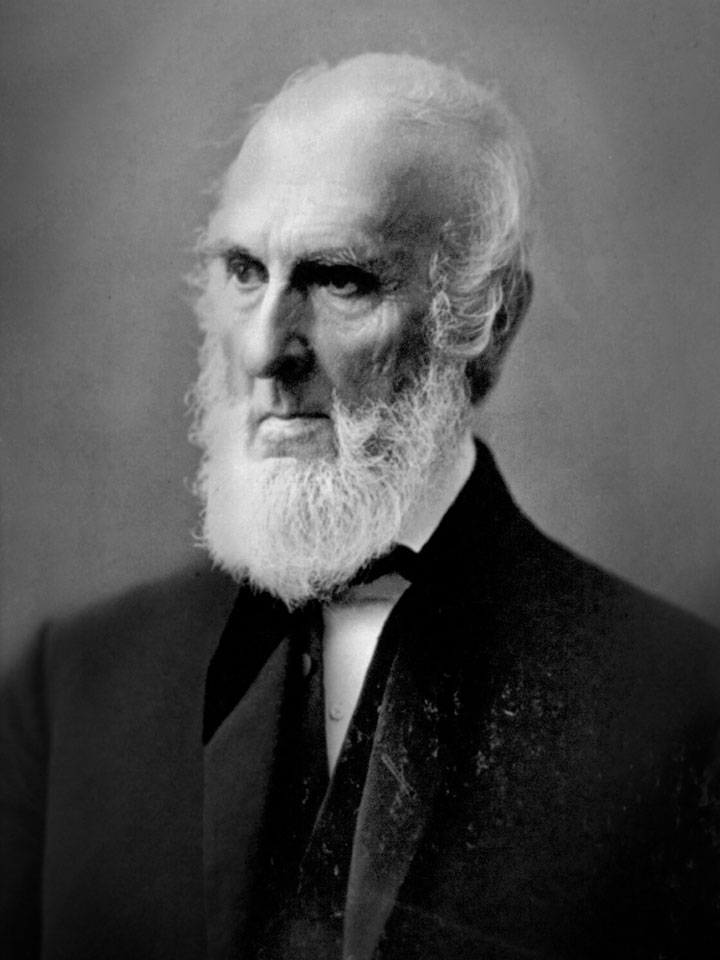John Greenleaf Whittier
Birth Name: John Greenleaf Whittier
Born: December 17, 1807 in Haverhill, Massachusetts
Died: September 7, 1892 in Hampton Falls, New Hampshire
Time Period: Victorian
Expertise: Abolitionist, Editor, Poet, Politician
Known For: Snow-bound, Telling the Bees, The Eternal Goodness

Quotes
Interesting quotes by John Greenleaf Whittier
“For all sad words of tongue and pen, The saddest are these, ‘It might have been.’”
“Peace hath higher tests of manhood than battle ever knew.”
“Rest if you must, but never quit.”
ADVERTISEMENT
Bio
A brief biography of John Greenleaf Whittier
John Greenleaf Whittier was born December 17, 1807 in Haverhill Massachusetts. He was a poet, editor and an abolitionist.
John grew up on a farm with his family and suffered from poor health. He had little formal education, but was a self-taught avid reader. This included books on Quakerism he got from his father, which heavily influenced his beliefs and outlook in life.
Whittier was first published at 18, when his sister, Mary, sent one of his poems, “The Deity,” to the Newburyport Free Press. After this, he was encouraged to attend school at the Haverhill Academy, so he became a shoemaker to pay for it, including bartering some food from his family’s farm to cover part of the tuition. He attended the academy from 1827-1828 and in these 2 terms managed to complete his high school education.
In 1829, John was hired as an editor for the National Philanthropist by William Lloyd Garrison—the same editor who published his first poem. This was short-lived, and Whittier was reassigned as the editor for the American Manufacturer, a weekly publication in Boston. During this time he became an outspoken critic of then President Andrew Jackson, and within a year he was the editor for the New England Weekly Review in Hartford Connecticut..
In the 1830s, John Greenleaf Whittier became political and ran for the US Congress. However, after losing the election, he suffered a nervous breakdown and returned to his home. He was encouraged by Garrison to join the abolitionist movement and in 1833, published a controversial pamphlet called Justice and Expediency. Being so outspoken on the topic of slavery was detrimental to his political career, but feeling it was morally correct, Whittier embraced it, and for the next few years traveled the Northern states giving speeches and lobbying politicians—some of which resulted in him being attacked and run out of town.
By 1838, Whittier landed a job as the editor for the anti-slavery paper, the Pennsylvania Freeman, and also continued to write poetry that was heavily focussed on slavery. Holding firm to his beliefs while others’ waned, John became a founding member of the Liberty Party in 1839 and in 1840 he attended the World Anti-Slavery Convention in London, England. Upon his return he became the editor for 2 Massachusetts papers, the Middlesex Standard and the Essex Transcript.
By 1845, the stress of being an editor got the better of him, and so Whittier returned to Amesbury, where he lived for the rest of his life. In 1847 he became the editor of an influential abolitionist newspaper, The National Era. For the next ten years, Whittier published his writings and poetry in this periodical, which many consider to be his best work. During this time he was named the poet laureate of the Liberty Party, and with more of his time focussed on his own writing, he was able to reach the hearts of many regarding his views on slavery. He also produced two collection of anti-slavery poetry—Poems Written during the Progress of the Abolition Question in the United States, Between the Years 1830 and 1838, and Voices of Freedom.
Whittier was an elector for the US presidential election in 1860 and 1864—both times for Abraham Lincoln. During the war, he began to get praise for his writing, even from previous detractors. His collection called, War Time, and Other Poems, was critiqued in the North American Review, in which they stated, “...on the whole, the most American of all our poets, and there is a fire of warlike patriotism in him that burns all the more intensely that is smothered by his [Quaker] creed.”
One of Whittier’s greatest successes came late in life—Snow-Bound: A Winter Idyl—a long-form narrative poem. It earned him $10,000 in its first printing alone.
John Greenleaf Whittier spent his remaining years in Massachusetts at the home of his cousins in Danvers, and finally at his own home in Amesbury, where he died on September 7, 1892.
ADVERTISEMENT
Works by John Greenleaf Whittier

Download free John Greenleaf Whittier books. Listen to John Greenleaf Whittier audiobooks.

ADVERTISEMENT
External Links for John Greenleaf Whittier
John Greenleaf Whittier on Wikipedia
https://en.wikipedia.org/wiki/John_Greenleaf_WhittierJohn Greenleaf Whittier on Wikisource
https://en.wikisource.org/wiki/Author:John_Greenleaf_WhittierADVERTISEMENT
Other Authors

See other authors of the Victorian period
- Emilio Aguinaldo
- Anonymous
- Ethel Lynn Beers
- Madison Cawein
- Mortimer Collins
- James David Corrothers
- Eugene Debs
- Frederick Douglass
- Paul Laurence Dunbar
- Thomas Hardy
- Henry Wilmarth Hazzen
- William Hope Hodgson
- Henry Wadsworth Longfellow
- Edgar Allan Poe
- Robert Louis Stevenson
- Bram Stoker
- Alfred, Lord Tennyson
- Mark Twain
- August Vogel
- Walt Whitman
- Oscar Wilde
- Kaiser Wilhelm II

